#Korean immigrant
Text
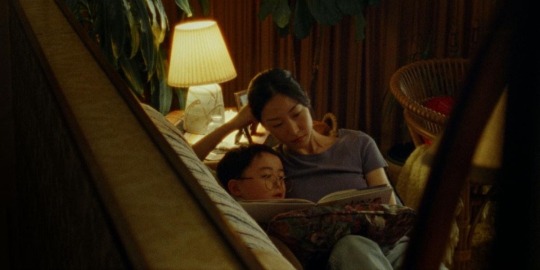
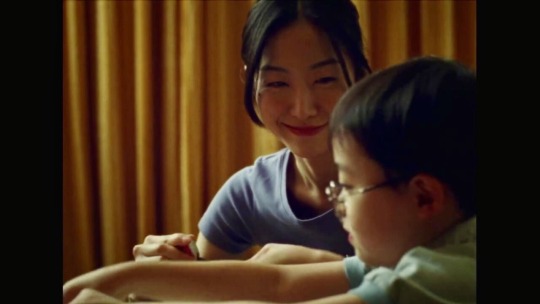
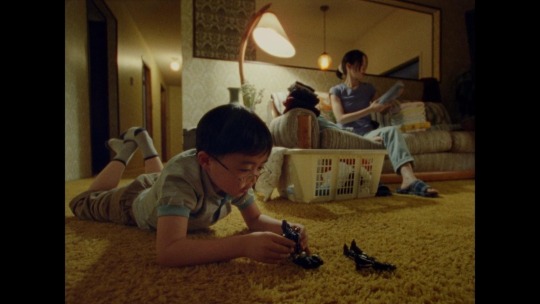

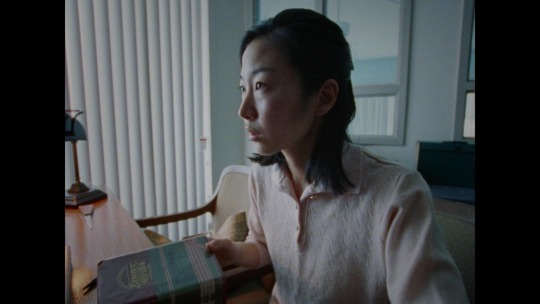

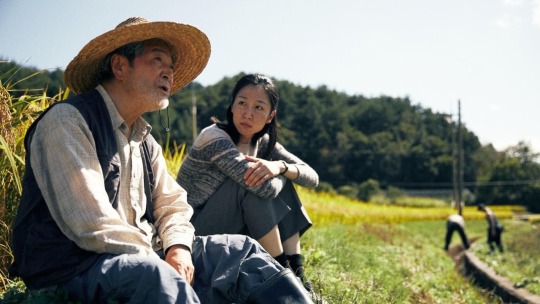
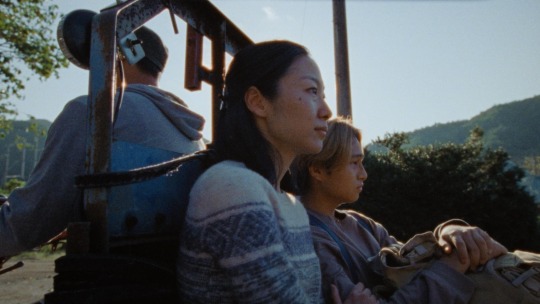
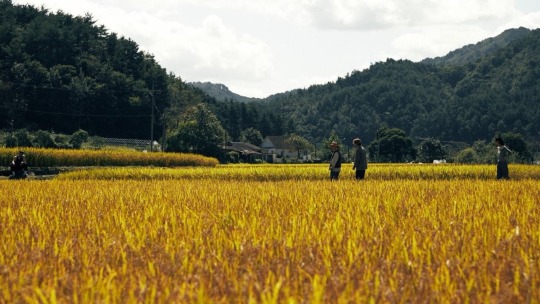

Riceboy Sleeps (2022)
Dir. Anthony Shim
#Riceboy sleeps#Anthony shim#Choi Seung-yoon#Ethan Hwang#Korean#Korean-American#immigrant story#Canada#Korean immigrant
19 notes
·
View notes
Text
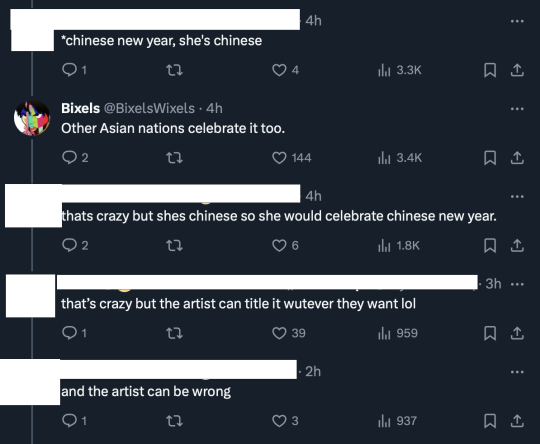
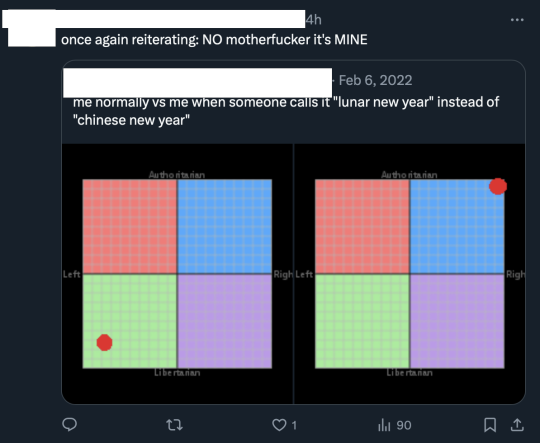
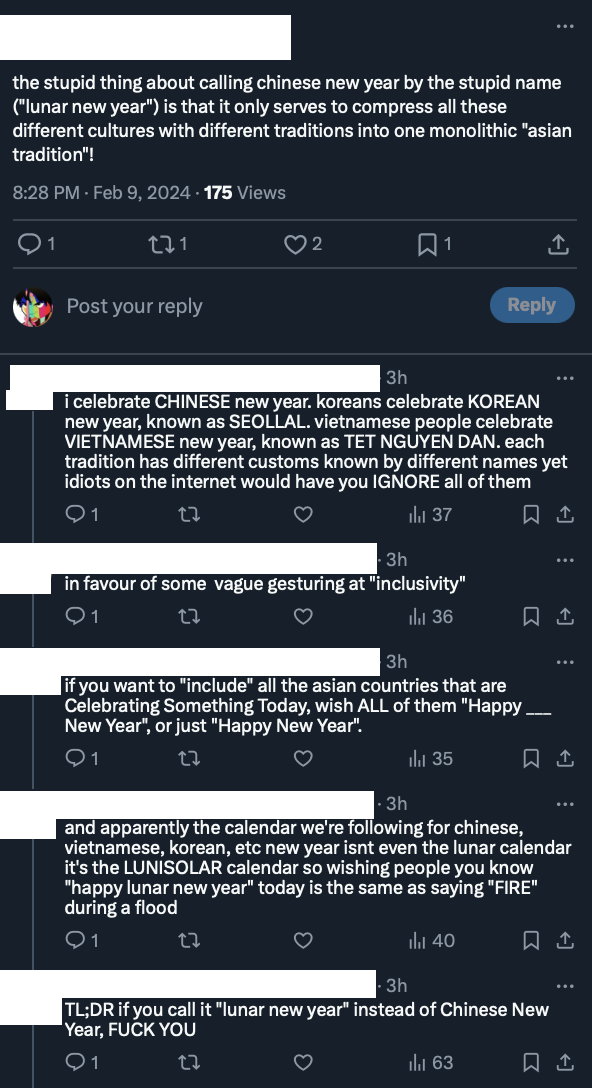
Jesus man, relax.
#this was in response to me saying “lunar new year” on the rarity art#personal#delete later#what in insane nonproblem to get this angry about#i asked my parents (taiwanese immigrants) about this and they said we use either but prefer lunar new year#because it's inclusive to koreans and vietnamese people who celebrate on the same day#lunar new year is an umbrella term same as “happy holidays.” this person is basically getting mad i said happy holidays instead of#merry christmas.#my family and i identify more as taiwanese than chinese so. we're not gonna say chinese new year much anyways#i sent this to my mom btw and she replied with basically “die mad i guess.” love you ma#this literally doesn't matter anyways i could have said “chinese new year” to caption that post and it wouldn't have mattered#the only reason i didn't is because i plan on drawing another art including carol (coco pommel) who's korean and celebrates the same day#like. most people in china/taiwan don't care they just say “happy new year” cuz it's the fuckin new year. someone saying lunar new year is#not erasure it's not flattening asian identities into a monolith. it's just an umbrella term.#anyways happy lunar new year happy chinese new year happy tet happy spring festival happy seollal#like i cannot stress enough to you guys that these holidays are on the exact same day and celebrate basically the same exact thing.#this is not an issue.
1K notes
·
View notes
Text
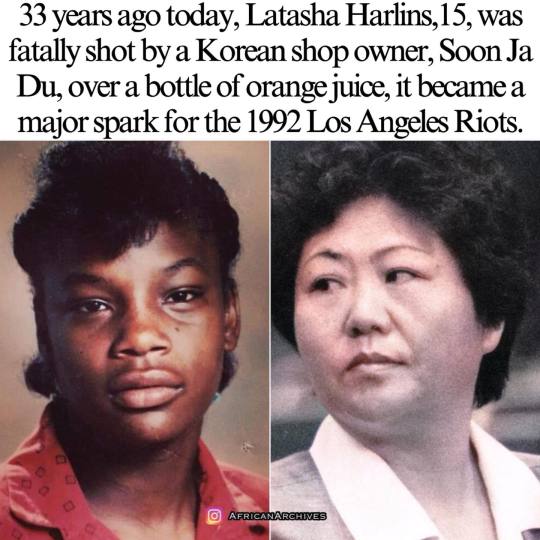
On March 16, 1991 Latasha Harlin’s short life came to a violent end in the midst of racial tensions in LA, and became a major spark for the 1992 Los Angeles Riots.
By the late 1980s, racial tensions were high in South Los Angeles.
After the change in national immigration laws in 1965 a large number of Korean immigrants arrived in Los Angeles and by 1968 the first Korean-owned market opened in South Central LA.
Longtime African American residents in the area at first welcomed the Koreans but eventually grew angry with them because they refused to hire black employees and often treated their customers poorly.
By 1990, 65% of South Central businesses were Korean-owned and a 1992 survey of these storeowners revealed considerable racial prejudice against black customers and black people in general.
Koreans in response argued that their attitudes evolved from high crime rates in the area and shop owner fears of shootings and burglaries. Latasha Harlins became a victim of these racial tensions on the morning of Saturday, March 16, 1991.
She entered a store owned by a Korean family, to purchase a bottle of orange juice. As she approached the counter, Soon Ja Du, accused her of stealing after seeing her place the bottle in her backpack, despite her holding the $2 payment approaching the counter to pay.
Du grabbed the bag and the two women had a violent scuffle. Harlins threw the juice bottle back on the counter and turned to leave the store when Du pulled a .38-caliber handgun and shot 15-year-old Harlins in the back of the head.
Du was arrested and her trial was held on November 15, 1991. Security-camera footage which showed Harlins’ attempt to pay for the juice and the subsequent scuffle between the two women convinced a jury to find Du guilty of voluntary manslaughter.
The Judge, Joyce Karlin, rejected the jury’s recommendation and instead sentenced Du to five years probation, 400 hours of community service, and a $500 fine.
One of the many reasons black people don't f*** with Asians like that and we should collectively drive them out of our neighborhoods
#latasha harlins#los angeles riots#racial tensions#korean immigrants#south los angeles#soon ja du#racial prejudice#voluntary manslaughter#racial discrimination#asian anti blackness#asian racism
267 notes
·
View notes
Text

If you reply to my posts, I’m going to assume you, too, are a fan of BL, and/or a proponent for gay rights, and/or a Liberal, who believes in equality for everyone.









MAGA: KEEP YOUR CULT-BASED DELUSIONS TO YOURSELF
#gay#lesbian#bl series#thai bl#Korean bl#japanese bl#taiwanese bl#vietnamese bl#Malaysian bl#lgbtqia+#lgbtqia#equality#marriage equality#kamala harris#vote kamala#we depend on immigrants & immigration#harris walz 2024#Tim Walz#women’s rights#abortion rights#the Constitution over religion#books over guns#no cults
63 notes
·
View notes
Text
Seeing characters in romance stories just jetting between countries at a moment's notice with no thought for visa; seeing airports as sites of triumphant climaxes and romantic denouements instead of places of fear and danger where a sword hangs above your head— it all breaks off little pieces of my heart. They're constant reminders that my people will never be human enough in the colonial world order to be allowed to move freely around it. No matter what your race, those non-refugees living in the Global North will never understand what it's like to be part of a global ghetto where your passport is nothing but a trembling supplication and humiliation.
#race#racism#westerners will never know the dehumanization of the visa office#the ability to afford a plane ticket and the ability to get your visa stamped goes hand in hand#bc you're not allowed to leave the country unless you can show that you can afford to stay there and come back#you have to swear in blood that you won't overstay a minute longer than you're permitted to and sign your firstborn as collateral#a western airport is the closest i can come to the muslim experience bc the authorities will only care about my skin tone#that season 2 finale of Sense8 where the Mexican‚ and Kenyan and Indian characters of the cluster were able to flee to the US within hours#at the same time as the south korean and westerners#had Lankan fans falling down laughing#we're willing to suspend our disbelief of the science fiction telepathy shenanigans but THAT is a bridge too far#sadly not even the worst of the Wakowskis racefails#I love that show but its Caucasity was aggressive#global south#global north#immigration#refugees#islamophobia#no fly list#white supremacy#coloniality#western imperialism#colonial capitalism#knee of huss
72 notes
·
View notes
Text
Zainichi, which literally means “residing in Japan”, is the name given to ethnic Koreans who immigrated to Japan post-war.

Although Koreans in Japan prior to World War II suffered racial discrimination and economic exploitation, the Japanese authorities nonetheless counted ethnic Koreans as Japanese nationals and sought to fully assimilate Koreans into Japanese society through Japanese education and the promotion of intermarriage. Following the war, however, the Japanese government defined ethnic Koreans as foreigners, no longer recognizing them as Japanese nationals. The use of the term Zainichi, or "residing in Japan" reflected the overall expectation that Koreans were living in Japan on a temporary basis and would soon return to Korea. By December 1945, Koreans lost their voting rights. In 1947, the Alien Registration Law consigned ethnic Koreans to alien status. The 1950 Nationality Law stripped Zainichi children with Japanese mothers of their Japanese nationality; only children with Japanese fathers would be allowed to keep their Japanese citizenship.

Read more about Koreans in Japan:
#zainichi#korean#Japanese#japan#korea#post war Japan#discrimination#ethnic minority#immigration#immigrants#WWII#three resurrected drunkards#japanese film
21 notes
·
View notes
Text

November WBMC Zine: Tooth, Mouth, Nail by Chris Kim
"tooth, mouth, nail" outlines my experiences starting testosterone and coming out to my family, followed by their backlash in 2021. Part of the struggle was the isolation I felt due to a stark lack of intersectional trans stories, so this comic is a way for me to add to that conversation as a 2nd generation Korean immigrant. Recovery from familial rejection is difficult, but it's possible, and I hope my story speaks to someone out there
~ @veggiecakeface
Tooth, Mouth, Nail is being published as limited run of physical zines, available during November 2023 only!
The WBMC publishes a new zine from trans/queer artists each month and mails them to you! Join at $6/mo to get on our monthly zine mailing list AND a print with your first delivery!
Follow and support Chris’s work @veggiecakeface on Twitter and Insta!
#zine#alt comics#comic#trans#diy#art#gay#queer#wbmc#furry#auto bio#hrt#coming out#transitioning#immigrant#korean
75 notes
·
View notes
Text
(random) ngl before i started learning korean i felt like the worst failure of a korean but now i feel like the best failure of a korean (/j) HAHA
like im struggling to speak but least im speaking..!! I feel like I've restored an essential piece of myself that was missing...
#i tweeted this but im prob gonna delete it soon so#puts it here too in case ppl can relate...? lol#since i know its a common immigrant kid experience...#being disconnected from your heritage language i mean#for various reasons...#i thought i was ok w it but its rly a horrible feeling#like i said it felt like smth was missing#and i kinda jokingly self deprecatingly worded it as the best failure of a korean#but thats kind of... accurate fmfbnf like i feel embarrassed that im not fluent and feel like im a baby flailing my arms#but i still feel like even if im imperfect im more... complete#that isnt to say i was incomplete before... or anyone in the same situation is. but its still an exuberant feeling#and helps me get over feeling embarrassed that i suck at kr so bad. like AT LEAST I CAN COMMUNICATE NOW!!!#talk tag#laughing to myself rmbring that me and prob 1000s of other asian americans prob wrote an essay abt being detached from our culture for#our college/scholarship/etc essays#well i didnt know i was lgbt then i had to write abt smth!! and it was eating me up all the time...#i rly hope i can improve my kr more in the coming yrs
34 notes
·
View notes
Text
this essay is going to be absolutely genius if I'm not talking rubbish
#girl either I'm having an epiphany or I'm stupid and I cannot articulate my epiphany clearly enough to know!#basically right ok the concept of authenticity#basically it's divided into two ideas - we perform authenticity relationally and then authenticity itself#which is what we're performing#but what if. the performance of authenticity were all there were. there's nothing behind it. ONLY the performance#performance is what CREATES the authentic! and as such the authentic is not a seperate concept from it!#I'm writing about food specifically Korean food but generally food and authenticity#thinking about pasta not being part of the italian national identity until immigration in the 19th century thinking about kimchi not being#fermented until the 16th century and the chili used in it not being native to Korea#like???#but I may be Literally Insane who knows
31 notes
·
View notes
Text
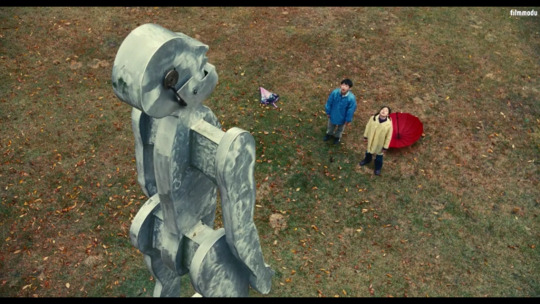



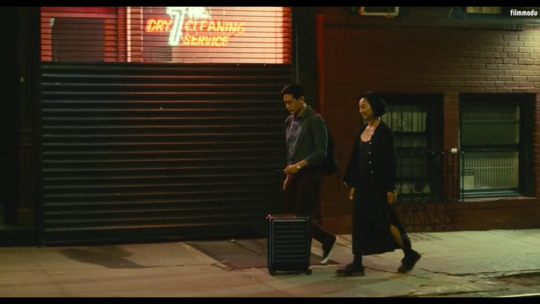
Past Lives (2023)
20 notes
·
View notes
Text
Korean Immigration to the United States
The first significant wave of Korean immigrants came to the United States between 1903 and 1905 when thousands of Koreans were brought over to Hawaii as cheap labor for the sugar plantations. This wave of immigration was made possible by the Gentlemen's Agreement of 1907, which allowed Koreans to enter the United States as "non-quota" immigrants.

A second wave of Korean immigration to the United States began in the 1960s as a result of the Korean War and the political and economic turmoil that followed. During this period, many Koreans came to the United States as war refugees or as part of family reunification programs. Many of these immigrants settled in urban areas such as Los Angeles and New York City, where they established vibrant Korean-American communities.

Today, there are more than 1.7 million people of Korean descent living in the United States, and the Korean-American community is one of the most well-established Asian-American groups in the country.
Various NARA microfilm publications reproduce passenger arrival records and vessel crew lists from the water or land borders from 1800-1982. Discover what records have been digitized and are available for online use: https://www.archives.gov/research/immigration/overview.
117 notes
·
View notes
Text
Great Kettering; land of Artistry and Pride
south-east corner of the continent, primarily orc citizens

discofairy on Unsplash.
Society:
The social structure mostly mimics the classes of England in the late middle ages.
Outsiders will call GK citizens / most orcs spies and eccentric artists, mostly vulgar and sarcastic, although others say they are teachers and healers, genuine and hardworking. GK calls themselves a sturdy and creative nation. The most attractive qualities for GK is dedicated, homely people willing to 'think outside the box', and physically, being neatly groomed and covered in tattoos is beloved.
Higher class citizens like to think that respect is universal, they give it freely and expect it in return just as freely. Although that outward respect often turns into whispers and rumours behind closed doors. Orcs born outside GK, other races born within GK, immigrants, even just younger GK orcs will be written off as 'not getting it like we do' or 'trying to hard to fit in'. The need to improve in your skills, whatever they may be, is expected tenfold in these people as well. This mentality will have lots of orcs ultimately staying in / settling down in GK, whilst younger citizens will travel to learn and hone their crafts before returning to their true home.
Tattoos are incredibly meaningful for orcs as they show social status, heritage, and personal challenges*. Lacking tattoos makes you too young, immature, or somehow 'lacking character' enough to hinder your tattoo journey. However, for children this is rectified with makeup, as it is considered to be the 'practice tattoo' to mimic their parents patterns, therefore using it as adult can be seen as immature or being so unskilled you have nothing to mark yourself with. Perfume is for lower/middle class citizens as they 'have something to hide' or are not nearly as groomed as the higher class. Jewelry and piercings are a highly sort after accessory in GK, the more gemstones the richer you are to spend so much on something so 'useless'. Especially as they are made to mimic an orcs tattoos.
*to learn more in depth, read about maori tattoo practices in New Zealand
Professions:
Most lower/middle class people teach their children the trade of the family and that's the best they will get. With more money and influence comes more opportunities and these children can go into areas that their parents send them to. The royal family gets a great education in how to rule, economy, trade relations, politics etc. but also how to FIND someone who can do the job for you.
Families will spend some time everyday, practicing their crafts together in their home. For this reason, there are generally no school buildings in GK. Some families will 'trade' promising children to either broaden their horizons, or to find a more specialised skill from others.
GK is the land of art; visual, writing, musical, dancing, anything that can be 'presented' as such is highly valued among citizens. Art where is meant to be shared, to be seen, there is no such thing as 'showing off' here. Most religious sites will have a gallery section, and noble homes will occasionally open themselves for galas and festivals.
Language:
The main 4 languages of Klenith are human, elvish, orcish, and dwarvish. The language in GK is Orcish. Imagine having a mouth full of tusks. There are lisps and a focus on throat sounds in the Orcish language. The written form uses lots of straight lines and circles or dots*. Poets like to turn the circles into small flowers for flair. There's a GK specific, fishing specific sign language for sailors and fishers. While it is difficult to use while on the open seas, smaller fishing boats will use this to communicate between village waters. There's the 'general' sign language for the nobility** allover Klenith. Most hand signs are reserved for the Spies or fishermen/sailors or the hard-of-hearing nobility. The Spies slang is also never spoken, purely a written dialect stemming from orcish and the equivalent hand sign, that is ever changing.
'The sign of a good fisherman is how vulgar he is and how many fingers he has.' A lot of swearing is against the seas/oceans or allusions to tragedies that happen in the rain, while happiness is in sunshine. There are also religious curses referring to various religious texts of Aeons.
The royal family bare a purple crest of three down-facing arrowheads, each a different shade of grey, the palest at the top and the darkest at the bottom, encircled by small red berries. The GK royal colours are purple and red, though many foreigners believe that grey is included. The arrowheads are the cliffs that lines GK, the berries from their Aeons religion, and the red is later attributed to the Spies institution (although it was red long before the Spies rose to power/popularity).
*similar to written korean
**deaf or HoH people elsewhere default to the fisher's sign language

ktabori on Unsplash.
Other Parts:
For Great Kettering. 1 / 2 / 3 / 4
For Solistal. 1 / 2 / 3 / 4
For Kamikita. 1 / 2 / 3 / 4
For Birkina. 1 / 2 / 3 / 4
#ted talks#my writing#my worldbuilding#worldbuilding#great kettering#tws#the klenith saga#kettering#orcs#fantasy#high fantasy#long post#part 3#part 3 of 4#professions#languages#classism#artistry and pride#settings#undescribed images#unsplash#society#gender roles#neurodiversity#disabled#immigrants#korean#new zealand#maori#polynesian
7 notes
·
View notes
Text
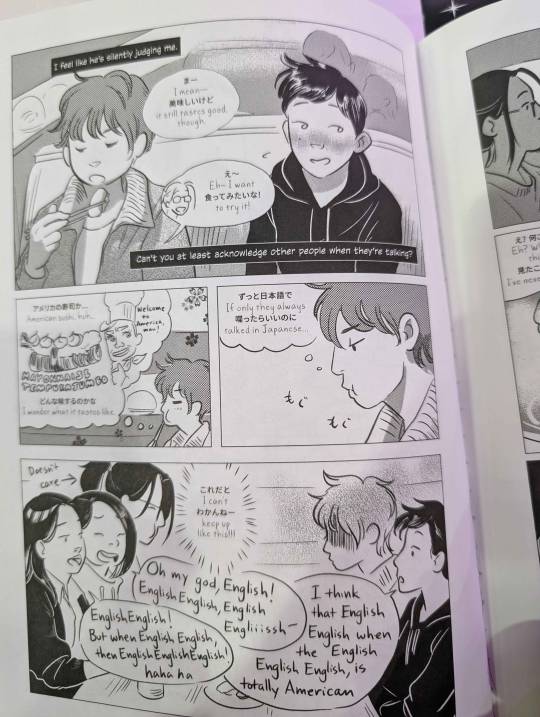
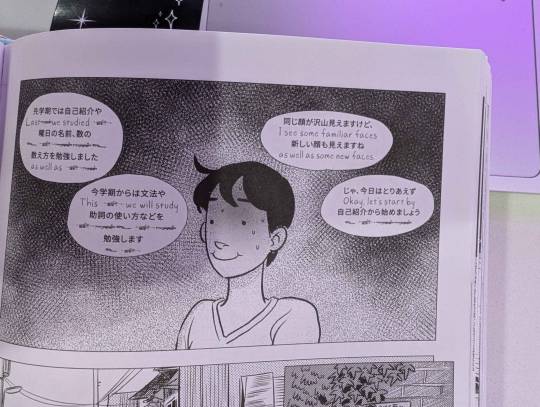
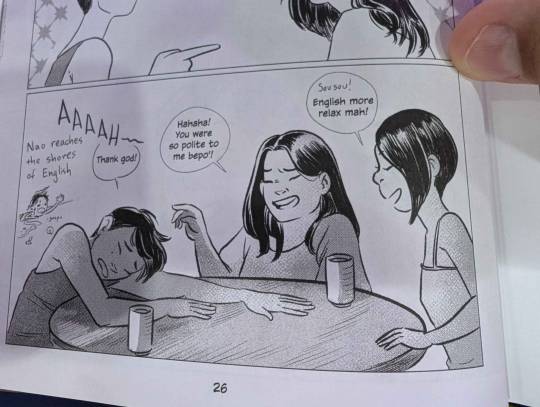
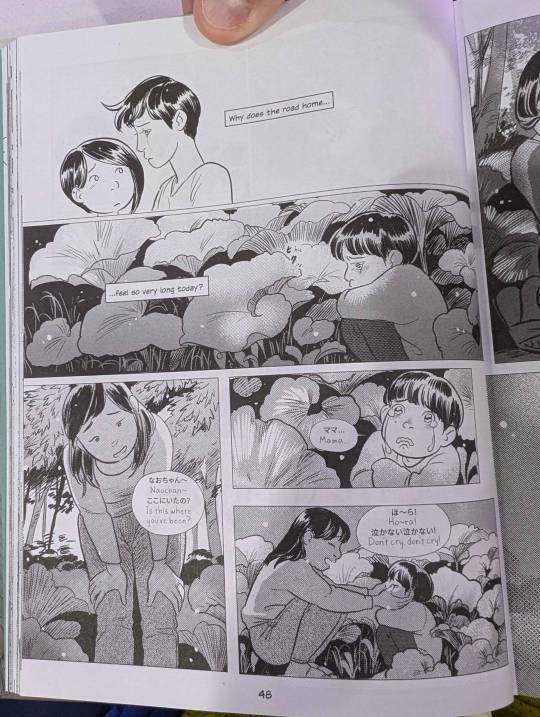
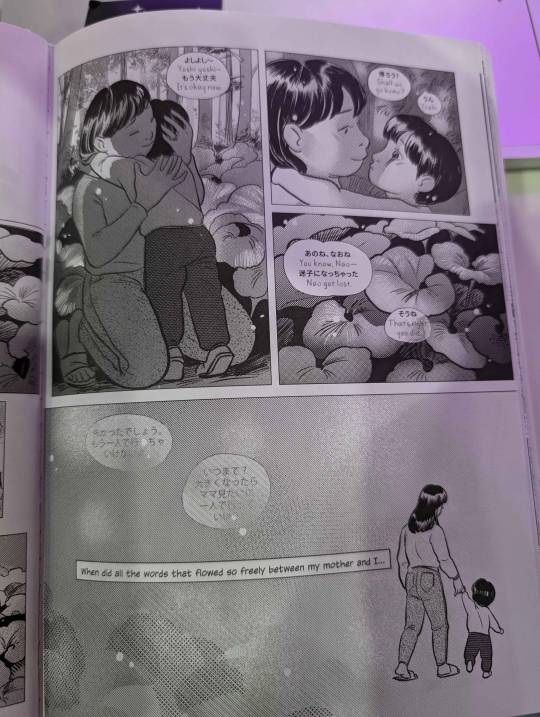
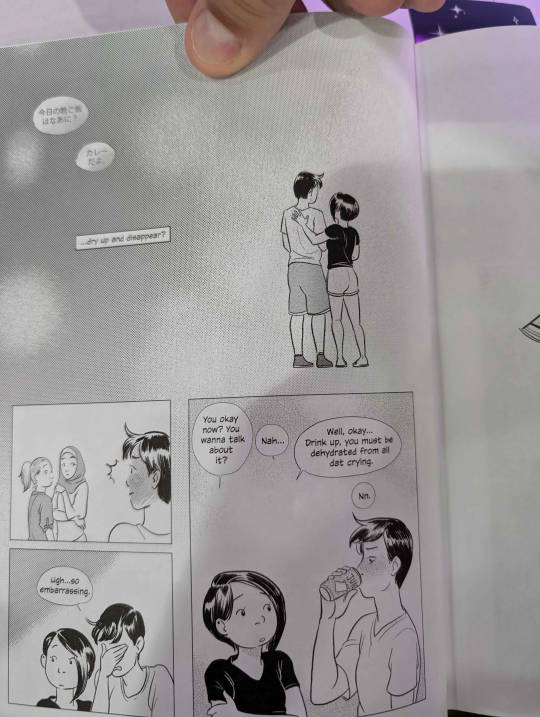
The linguistic richness of Himawari House is incredible. It's a story about a girl whose family moved from Japan to the US when she was little, and now she's taking a gap year to reconnect with her heritage.
But her Japanese is weak from all those years fighting to assimilate into American culture. Her new flatmates include a Singaporean girl, a Korean girl, and two Japanese guys. The first two speak good English, while the latter two do not.
The way the author visually depicts bilingualism, a lack of fluency, dialects, accents, and the process of language acquisition is amazing and a WHOLE ASS MOOD.
I see so much of myself in this story since I, too, moved to Japan from the US with decent but not great Japanese, and come from a household where I had to re-acquire my family's language in adulthood with great effort to preserve my culture.
I can't recommend this graphic novel enough.
#japanese#singlish#korean accent#japanese-american#asian diaspora#manga-like#graphic novel#immigrant experience#slice of life#young adult#bilingualism#language acquisition#language#linguistics#art#comic book
6 notes
·
View notes
Text
i am seriously considering studying korean formally bc 1) I already understand like 70% of the dialogue in dramas without subs, so might as well learn how to speak and read while I'm at it 2) I need to be able to understand sooyoung yves's insta stories. that's literally it. I will learn a language (not quite from scratch but... from... Not Much) for my wife
#also i want to be able to read more poetry#i can read poetry in eng fr esp and a bit in urdu (i mainly only speak urdu lol. immigrant problems)#and well. it would be nice to add korean to that list#also putting a hold on mandarin and japanese. one day....#OH and dutch even tho ppl say dutch is useless LOL#z.post
8 notes
·
View notes
Text
I love when a hyperfixation on a character sends me into a research rabbithole about the culture that character comes from, like yes bitch we're taking part in cultural appreciation todayyyyy
#beastiebites#one of the npcs from mhc is korean with immigrant parents#and hes also currently my hyperfixation guy so I'm doing research into traditional korean clothing to do designs for an au#fantasy au mhc my beloved <3#the impulse for me was to go with typical european fantasy fashion but i wanna honor the culture he comes from too#even if its just a goofy au that only me and the mhc crew will be into#also i was gonna have to do research anyway because even in the og story his culture is something that is important to him#because he loves his family and loves the traditions they've taught him#and ill be damned if i dont depict the culture with the utmost respect i can even if in the grande scheme of things#very few people will know about the story and characters#personal accountability to try my best to respect and depict other cultures as respectfully as possible is v strong in my head
4 notes
·
View notes
Text
⛓️ It's the 4th of July, America's Independence Day.
Do Native, African-, Asian, and Hispanic Americans have anything to celebrate today?

🛶 Do Native Americans have anything to celebrate?
Many Native Americans view the 4th of July as a celebration of colonialism and the oppression of indigenous peoples rather than a celebration of independence. The Declaration of Independence itself refers to Native Americans as "merciless Indian Savages." Furthermore, contemporary celebrations often overlook or ignore the painful history of Native American communities, perpetuating a sense of exclusion and historical erasure.

🛶 Hunkpapa Lakota Sioux Tribal Chief Sitting Bull
For many African-Americans, the Declaration of Independence's assertion that "all men are created equal" starkly contrasts with the historical realities of slavery and systemic racism that have plagued African-American communities since the nation's founding. This contradiction was poignantly highlighted by Frederick Douglass in his 1852 speech, "What to the Slave is the Fourth of July?" For many, Independence Day serves as a reminder of the persistent fight that must go on for civil rights and justice.

⛓️ Frederick Douglass asks, "What to a Slave is the Fourth of July?"
Despite the holiday's celebration of freedom and independence, Asian Americans have faced exclusionary policies, such as the Chinese Exclusion Act and the internment of Japanese Americans during World War II. These historical injustices, coupled with ongoing issues of racism and xenophobia, contribute to mixed feelings about the 4th of July.
Many Hispanic Americans reflect not upon the 4th of July's ideals of freedom and independence, but upon historical and ongoing immigration, labor exploitation, and racial discrimination. The disparities between these ideals and their actual experiences can lead to a sense of exclusion. For some, the holiday serves as a reminder of their persistent struggle for equality and recognition in American society. ☮️ Peace… Jamiese
https://www.pixoplanet.com/post/4th-of-july
#4th of july#independence day#fourth of july#america#usa#american#freedom#native americans#african americans#asian americans#hispanic americans#declaration of independence#systemic racism#frederick douglass#civil rights#chinese americans#japanese americans#xenophobia#immigration reform#korean americans#vietnamese americans
3 notes
·
View notes